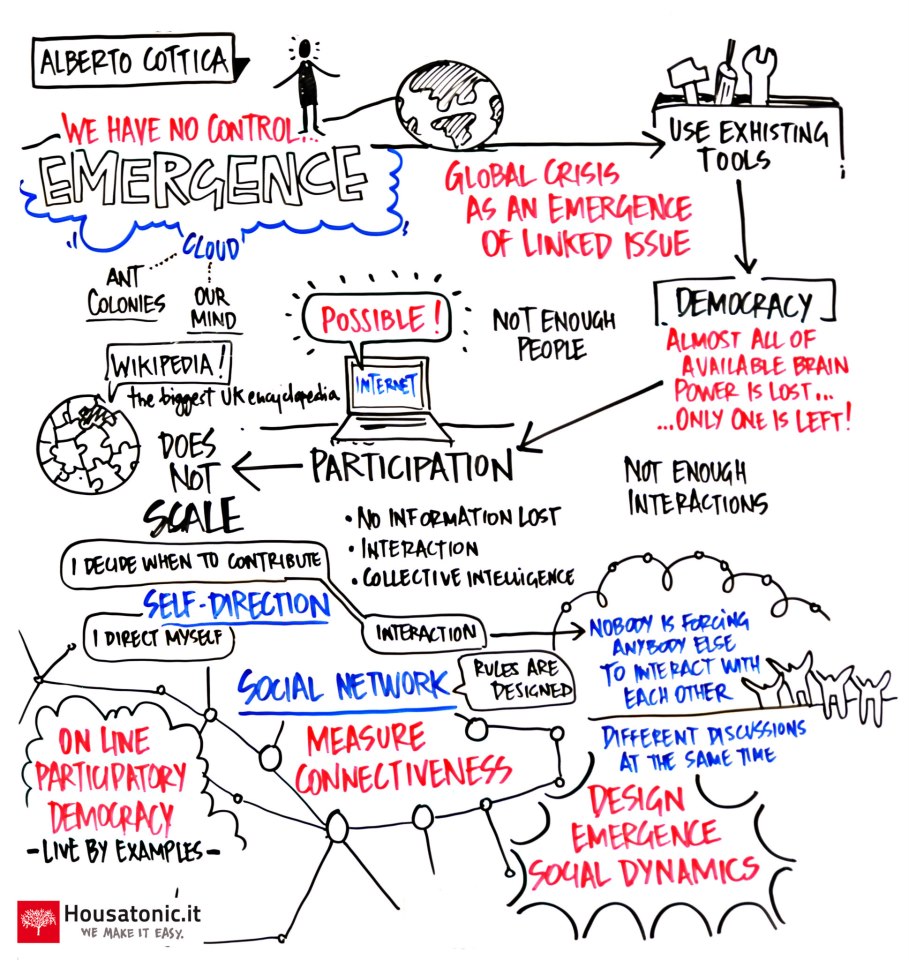Questo post è soltanto in in inglese, e così saranno quelli che seguiranno nella categoria Network Notebook. Il senso è questo: inauguro una specie di taccuino pubblico (o zibaldone) del mio lavoro di ricerca sull’analisi di rete come via per abilitare la democrazia partecipativa su grande scala. Saranno post pensati un po’ meno per i miei lettori abituali, e un po’ più per me e per chi, come me, è affascinato da questo tema e non riesce a non pensarci. Tra l’altro, non li tradurrò in italiano. I miei post normali, invece, continueranno a essere sia in italiano che in inglese.
In 2009 I was thunderstruck by the elegance and power of network analysis as a way to represent online conversations, thanks to a piece of work that a (then) student called Ruggero Rossi did on a project that I was managing at the time. I have never been able to let go of networks ever since. I have been cultivating hunches and teaching myself the obligatory math and programming techniques; getting my hands dirty with data; I have even come up with a grand vision, that of making participatory democracy work at the planetary scale (see the video above). 2013 is the year when it all comes together, and I push this journey onto some solid result.
Influenced by a second reading of Steven Johnson’s Where good ideas come from, I decided to borrow a technique from the amateur scientists of the English Enlightenment: write everything down, well before your ideas are clear. If you keep at this, you will get what the British call a commonplace book (if you, like me, are Italian you might prefer to call it by its Italian name, zibaldone. We invented it, you know): a collection of thoughts, observations, hunches and marginalia that are not even trying for consistency and narrativization. Its purpose is not to make a good read, but to save ideas and intuition and in a place where they can be retrieved in a more or less random access fashion, so that they can be retrieved in a different order from that in which they were originally entered, and in that way give rise to new approaches and new ideas.
I am a blogger, and my blog seems the natural place to host my Network Notebook. The added benefit is that other people can find me, and reuse or challenge some of my hunches. The down side of putting this stuff on the blog is the temptation to curate it to make a prettier post: but doing that means self-censoring, writing less, writing only reasonable stuff instead of crazy thoughts and killing the whole purpose of the exercise. I need to find a sweet spot between a private notebook and a public blog. So here’s the deal (for now):
- I will write these posts in a separate category, Network Notebook.
- I will not bother to translate them into Italian. My other posts are and will remain bilingual, but these will be only in English.
- I will not curate them too much. If you need a link or an explanation do ask, I’ll be happy to comply!
- I will probably not spread them over social networks too much
Wish me luck. Wreck my ship I might, but it certainly is a fascinating journey 🙂
